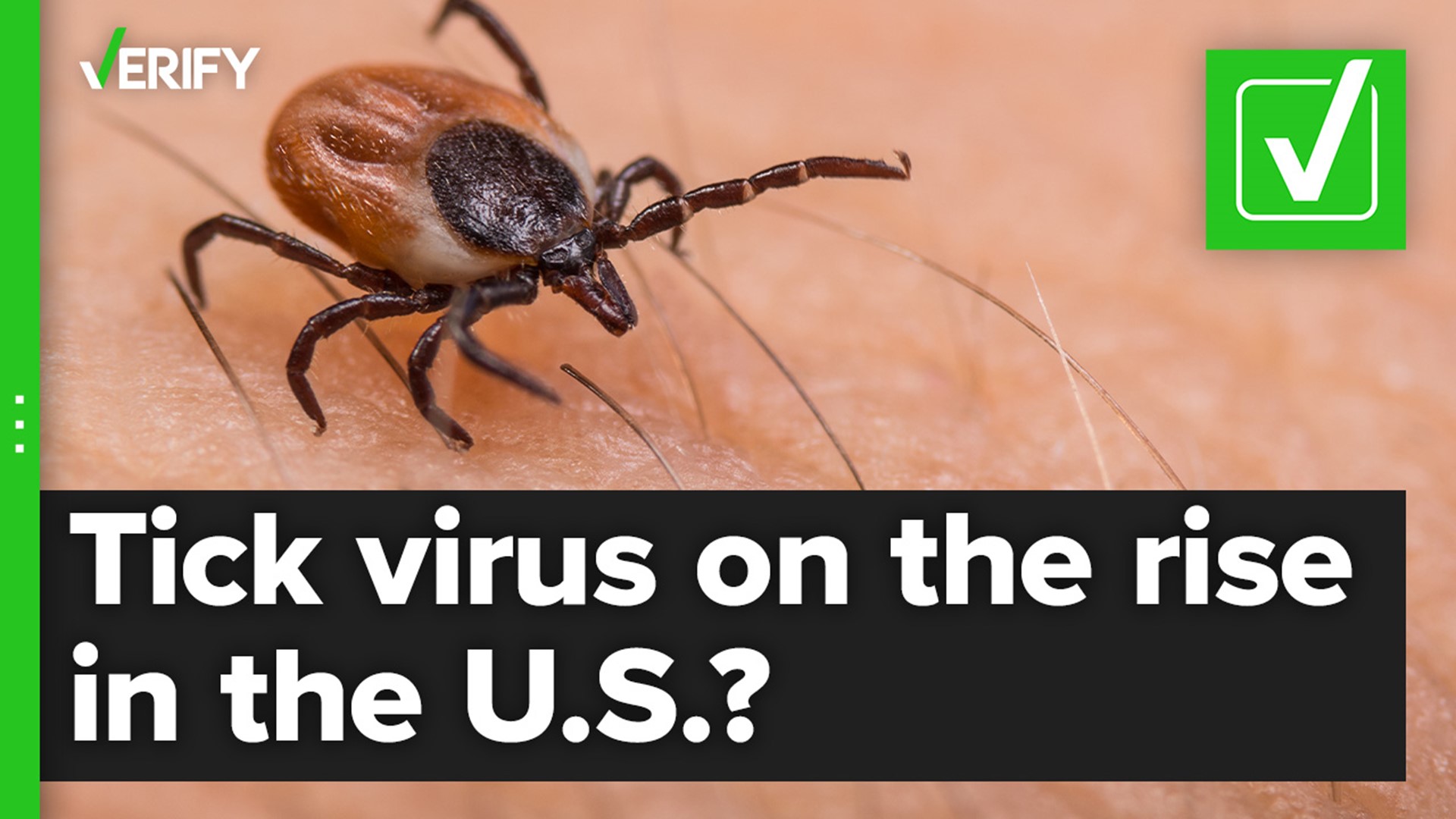Ticks are pesky arachnids that can cause serious illness.
Lyme disease, which the Centers for Disease Control and Prevention (CDC) says impacts nearly half a million Americans per year, is the most common tick-borne disease, but there are at least 20 different infections transmitted by ticks in the U.S.
People on social media recently began sharing this report from a climate and public health reporter for Grist magazine about a lethal tick-borne disease called Powassan virus spreading in the U.S.
THE QUESTION
Have cases of tick-borne Powassan virus increased in the U.S.?
THE SOURCES
THE ANSWER
Yes, cases of tick-borne Powassan virus have increased in the U.S., though they still remain rare. Most cases of Powassan virus occur in the northeast and Great Lakes regions of the U.S.
WHAT WE FOUND
Powassan virus is usually spread through the bite of an infected black-legged or deer tick. It can take one week to one month for people to develop symptoms of the virus after a tick bite, the CDC says.
Though cases of Powassan virus are rare and only reported in the dozens annually, they have increased in recent years.
CDC data show that reported cases from 2016-2020 were three times higher than the previous five-year period. From 2011-2015, there were 44 cases of the virus, compared to 134 cases from 2016-2020.
Cases dropped to a low of 6 in 2015 and jumped to a high of 39 in 2019, according to the data.
The CDC has not released full results for 2021 and 2022 case numbers, but a map from the public health agency shows 19 cases in 2021 and six cases so far in 2022.
Though Powassan virus is much less common than Lyme disease, it can lead to serious disease requiring hospitalization, including an infection of the brain called encephalitis or an infection of the membranes around the brain and spinal cord called meningitis. Symptoms of severe disease include confusion, loss of coordination, difficulty speaking and seizures.
According to the CDC, approximately 1 out of 10 people with a severe case of Powassan virus die and about half of the people who survive have long-term health problems.
People with less serious symptoms can have a headache, vomiting and weakness. Many people infected with the virus don’t experience any symptoms.
“I think any time anybody has a tick bite, you have to think about Lyme, you have to think about Powassan. …You can't separate them, because I think you have to be vigilant to the cause, not the illness,” Steven Bock, M.D., president of the International Lyme and Associated Diseases Society, said.
Most cases of Powassan virus occur in the northeast and Great Lakes regions of the U.S. from late spring through mid-fall, when ticks are most active, the CDC says.
But it’s possible that the virus could pop up in other states, as all tick-borne diseases have increased throughout the nation in recent years, Bock told VERIFY. That’s because the overall tick population has risen, too, in part due to climate change.
RELATED: 4 Fast Facts about monkeypox
States report fatal Powassan virus infections in 2022
In April 2022, an adult in Maine died in the hospital from Powassan virus after developing neurological symptoms, the Maine CDC said. The person likely became infected in the state.
In June 2022, the Connecticut Department of Health said a woman in her 90s died from Powassan virus on May 17 after a tick was removed two weeks before her symptoms began. The woman was admitted to the hospital with symptoms that included fever, altered mental status, headache, chills, chest pain and nausea.
This was the second case of the virus in Connecticut in 2022. A man in his 50s became ill in late March and was hospitalized with a central nervous system disease. He was later discharged and recovered at home.
From 2017 to 2021, 12 people contracted Powassan virus in Connecticut – including three cases last year. Two of those 12 cases were fatal. The recent death of the woman in her 90s is Connecticut’s first fatality from the virus in 2022.
Maine has identified 14 cases of Powassan virus since 2010, health officials said.
Those who think they may have Powassan virus should talk with their health care provider, who can test for it, Bock said.
There isn’t a Powassan virus vaccine or a medicine to treat it, but you can try to avoid contracting the virus by preventing tick bites. The CDC has tips on its website, including avoiding areas where you might come into contact with ticks; treating clothing and gear; checking your clothing and body for ticks; and showering soon after being outdoors.

